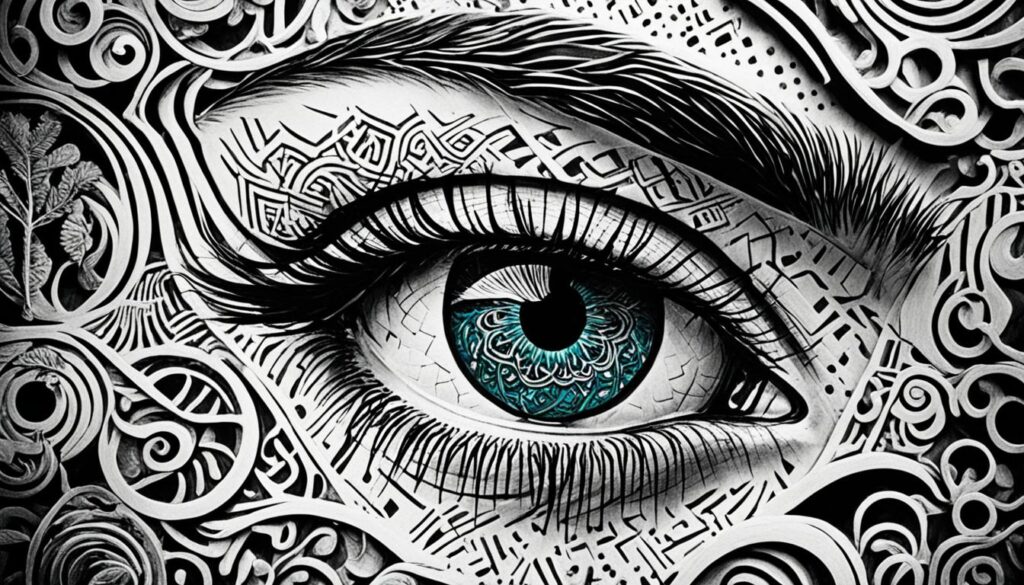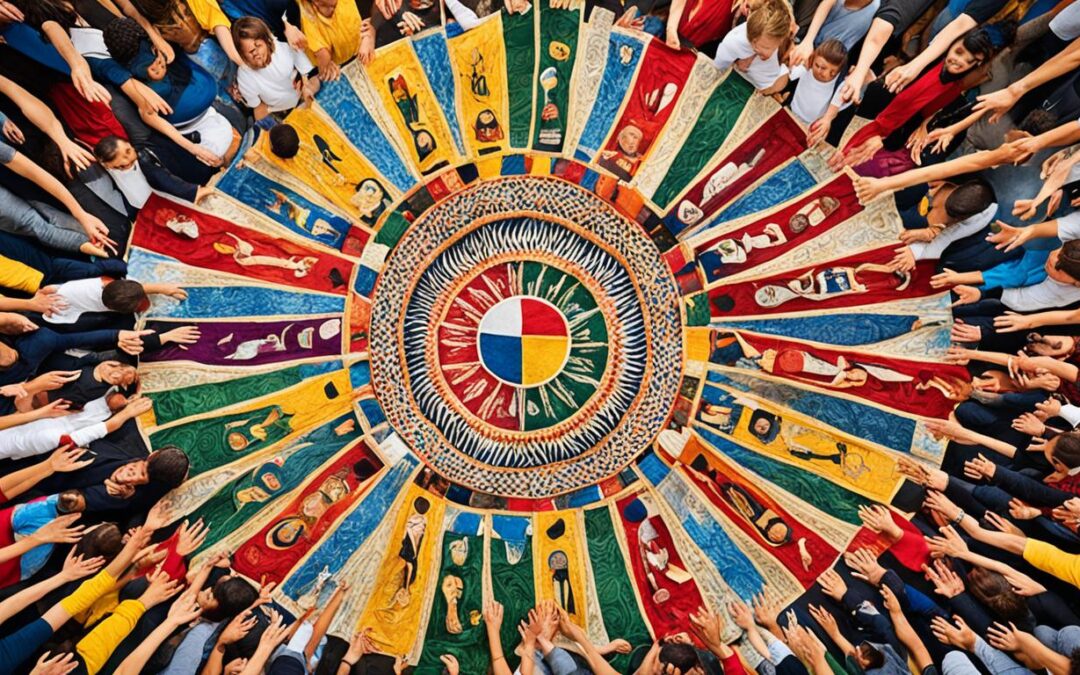Culture plays a significant role in shaping our identities and perspectives in society. It influences how we see ourselves and the groups to which we belong. Our understanding of cultural identity develops from birth and is shaped by the values and attitudes prevalent in our homes and communities. Additionally, personal experiences and relationships contribute to our identities. However, it is important to recognize that individuals have unique paths and choices that contribute to their identities, making them distinct from others within the same culture.
The Complexity of Culture and Identity
In understanding how culture shapes our identities and perspectives in society, it is important to acknowledge the complexity of both culture and identity. Culture is a multifaceted concept with various interpretations and meanings. It is not static, but rather dynamic, evolving over time and in different contexts.
Identity, on the other hand, consists of diverse facets that form an individual’s sense of self. These facets are influenced by a range of factors, including culture, societal norms, personal experiences, and interactions. People today often identify with multiple cultures and ancestries, resulting from increased globalization, migration, and inter-marriage. This intermingling of cultures contributes to the richness and complexity of personal identities.
Mass media and popular culture also play a significant role in shaping our understanding of culture and identity. The influence of media, coupled with increased social interaction, allows for the exposure to diverse cultural practices and perspectives. This exposure expands our worldview and challenges traditional notions of identity.
To illustrate the complexity of culture and identity, consider the following example:
| Culture | Identity |
|---|---|
| Japanese | Japanese-American |
| American | Asian-American |
| Chinese | Sino-Japanese-American |
As seen in the table, individuals can have intricate identities that reflect multiple cultural influences. This complexity emphasizes the importance of recognizing and embracing cultural diversity.
Understanding the complexity of culture and identity is crucial in comprehending how they shape our perspectives and worldviews. It allows us to appreciate the interconnectedness of different cultures and better navigate the increasingly globalized society we live in.
The Three Dimensions of Identity
Identities can be categorized into three main dimensions: personal, social, and cultural. Each dimension contributes to the formation of our individual sense of self and the way we interact with the world around us.
Personal identity is shaped by our unique combination of experiences, interests, and characteristics. It encompasses our values, beliefs, talents, and aspirations. Our personal identity reflects the choices we make and the paths we take in life.
Social identity is derived from our involvement in specific social groups. These groups can be voluntary, such as joining a sports team or a club, or involuntary, such as being born into a certain family or belonging to a particular ethnic or religious community. Social identity influences our sense of belonging and the roles we play within different social contexts.
Cultural identity is based on socially constructed categories and teachings about ways of being and behaving. It encompasses the beliefs, values, traditions, and customs that are shared by a particular group of people. Cultural identity provides a sense of continuity, belonging, and shared history.
These dimensions of identity are not fixed or static. They can change over time as we grow and evolve as individuals. Additionally, the salience of each dimension varies depending on the context and our personal development.
By recognizing and understanding these different dimensions of identity, we can gain a deeper appreciation for the complexity of human beings and foster inclusivity and empathy in our interactions.
Comparison of the Three Dimensions of Identity
| Dimensions of Identity | Description |
|---|---|
| Personal Identity | Shaped by individual experiences, interests, and characteristics |
| Social Identity | Derived from involvement in specific social groups, voluntary or involuntary |
| Cultural Identity | Based on socially constructed categories and teachings about ways of being and behaving |
The Relationship Between Culture and Identity
Culture and identity share a dynamic and symbiotic relationship. Culture plays a vital role in shaping our understanding of our own identities and how we perceive others. Through shared values, attitudes, and social norms, culture provides a framework that influences our perspectives on ourselves and the world around us.

At the same time, our individual identities contribute to the diversity and evolution of culture. Our choices, interactions, and personal experiences influence our own growth and impact the cultural dynamics within our communities. As we navigate our identities within different cultural contexts, we negotiate, adapt, and integrate various aspects of culture into our sense of self.
The relationship between culture and identity is a continuous and reciprocal process. Our cultural backgrounds shape our identities, and in turn, our identities inform and shape the cultures we belong to. This interconnectedness between culture and identity is crucial to our understanding of ourselves and others, fostering empathy, acceptance, and inclusivity within society.
Understanding Cultural Identity Development
Cultural identity development is a fascinating and intricate process that begins from the moment we are born and continues throughout our lives. As we navigate through different stages, we come to understand and define our cultural identities in unique ways, shaped by our interactions with others and the experiences we encounter.
Intercultural communication plays a fundamental role in this development, serving as a bridge between different cultural groups. It involves learning and using the codes, languages, and customs of diverse cultures, enabling us to connect and engage with others in meaningful ways. Through intercultural communication, we gain insights into different perspectives, challenge stereotypes, and foster empathy and understanding.
It is important to acknowledge the historical roots and social expectations associated with cultural identities. Our cultural backgrounds are deeply intertwined with traditions, values, and beliefs that have been passed down through generations. Understanding this context can help us appreciate the complexities and nuances of our own cultures and those of others.
Cultural identities are not static or fixed; they have the potential to evolve and adapt. Our interactions with different cultures, exposure to new ideas, and personal growth can shape our identities over time. The development of cultural identity is a dynamic process that reflects both our individual experiences and the broader cultural landscape.
By exploring and understanding cultural identity development, we can foster inclusivity and promote intercultural understanding in a multicultural world. Recognizing the importance of cultural diversity and actively engaging in intercultural communication allows us to embrace our own cultural identities while appreciating and respecting those of others.
The Significance of Culture and Identity in Society
Culture and identity play a crucial role in shaping our perceptions, interactions, and understanding of the world. They are not only a reflection of who we are as individuals, but also contribute to the broader social dynamics within society.
Our cultural backgrounds and identities influence the way we see ourselves and others, and they provide a framework for how we navigate social relationships. They shape our values, beliefs, and behaviors, and help us determine our sense of belonging. Through culture and identity, we connect with others who share similar experiences and create communities that foster a sense of unity and support.
Understanding the complexities and influences of culture and identity is vital in today’s society. It enables us to embrace diversity, promote inclusivity, and cultivate empathy for others. By recognizing and appreciating different cultural perspectives, we can build bridges of understanding and break down barriers of prejudice and discrimination. This helps us foster a more inclusive and harmonious society that values and respects the richness of our cultural heritage.

